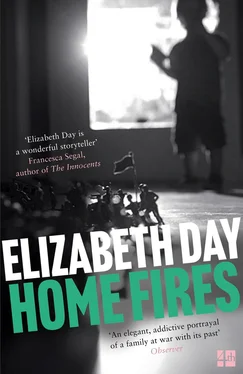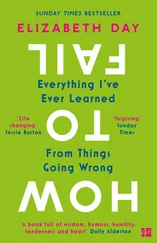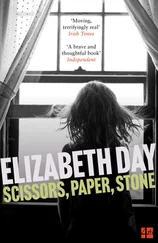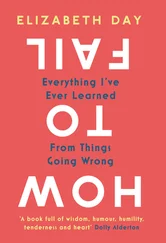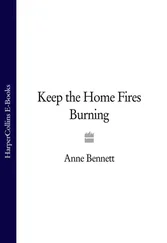For a second, Elsa is ashamed for the woman and for her mother, but then her ears seem to pop, as if they had been filled with wax until that moment, and she hears the same scratchy sobbing sound replicated a dozen times over from all different directions. The whole crowd seems to be crying as one, their breaths heaving and creaking like a swinging rope.
She is unsettled by the strangeness of what is happening and, in search of reassurance, turns to find Mrs Farrow but her neighbour’s eyes are shaded by the tree leaves and Elsa cannot make out the expression on her face. Mrs Farrow’s son Bobby, who has been unusually quiet throughout the procession, is looking intently at his feet, scuffing the toe of his boot into the sand until his mother tells him to stop fidgeting. After several minutes, the woman in the pale pink cloche hat wipes her eyes with her gloved fingertips and turns to go. Slowly, the crowd thins out and disperses. Her mother lets Elsa’s hand drop and Mrs Farrow suggests they should start making their way home.
On the train back to Richmond, the four of them sit in a carriage, empty apart from an elderly gentleman in one corner, his left eye obscured by a glinting monocle. For a while no one speaks.
‘Alice, my dear, are you quite well?’ Mrs Farrow asks. The train judders forwards, hissing and spitting as it does so. Her mother nods, listless. Mrs Farrow leans across to pat the back of her hand. ‘That’s the spirit.’ She turns to look at Elsa and cocks her head to one side.
‘What a day,’ she says.
She has dark brown eyes that are almost black and Elsa finds that she cannot look away. She gazes back at Mrs Farrow without speaking. Bobby is swinging his legs against the train seat, his feet beating out an irregular rhythm.
‘Quiet now,’ Mrs Farrow says, resting a cautionary hand on his arm. He stops immediately and Mrs Farrow smiles, gently. She is a kind woman, Elsa thinks. Kind but firm.
She wishes she could say something to her, something that would explain how she feels. She wishes she could tell Mrs Farrow that she is scared to go home, that she does not like her father, that his return has changed everything for the worse, that her mother no longer loves her as much as she used to, that she does not know what to do about any of it, any of it at all. She wishes she could find the words, that she was old enough to know how.
Instead, Elsa breaks away from Mrs Farrow’s gaze and rests her head against the leather-lined upholstery. She does not want to have to think. After a while, she falls asleep. The war fades away in her mind: a bubble pricked before it reaches the ground. For the remainder of the train journey, her thoughts sink under a shroud of blankness, the flakes of its quietness falling like silent snow.
Back at the house, her father is nowhere to be seen.
‘I expect he’s still in the study,’ says Elsa’s mother, removing her gloves finger by finger. She leaves them on the hall table in a careless heap. Elsa stands by the doorway, not wishing to make a noise. Her mother looks at her and something about the way she is hanging back, wordlessly, seems to aggravate her.
‘What are you doing, dear?’ she says. ‘Close the door properly behind you and then . . .’ The sentence hangs between them, incomplete. A single strand of hair sticks to her mother’s forehead. Elsa wonders if she has noticed it there, the gentle itch of it against her skin. ‘Why don’t you go up and see if your Papa would like some tea?’ says her mother, walking into the drawing room.
She watches her go and whereas, in the past, Elsa might have felt a lurch of disappointment at her mother’s absence, she realises that her feelings have changed. She does not allow herself to need her, not like she used to. She thinks: I am no longer a baby.
Elsa, still in her coat, makes her way towards the staircase. She walks slowly, so as to eke out each second before she has to confront her father, before the shape of the day will be changed by his mood. She holds out her hands. The right one is shaking and she is irritated by this, annoyed with herself for not being able to steady her nerves.
Upstairs, she creeps down the corridor to her father’s study. The door is ajar, a glimpse of sunlight streaming through in a narrow beam across the carpet. For a moment, she is dazzled by the whiteness of the light. Then, she can see her father, at his desk. He is sitting upright in the oak chair, his arms resting on the blotting pad. There is no evidence that he has been working on any papers. He is staring straight ahead, not moving, barely even breathing, and facing a blank wall that used to have a picture on it. There is a faint, discoloured triangle on the picture rail where once it had hung. It had been a faded reproduction of a country scene: a silty river, a hay cart, a pale blue sky, a man in a bright red coat. Elsa wonders where it has gone.
She knocks on the door. Horace starts at the noise. He shakes his head, as though to rid it of something and then takes out a pile of loose paper from a drawer, setting it in front of him.
‘Yes,’ he says. His voice is tired.
Elsa walks in. ‘Good afternoon, Papa. Mama has sent me up to ask whether you would like any tea.’ The words tumble out quickly. She dislikes how childish she sounds.
He shifts the chair round so that he is looking directly at her. She takes a step backwards, pressing herself as close to the wall as she can. His eyes seem unfocused, glittery.
‘Tell me,’ he says, leaning forwards, his expression intent. ‘How was it?’
Briefly, she is not sure what he is asking about. And then she thinks: of course, the procession. He is interested after all.
‘It was . . .’
‘Well, speak up, child, speak up.’
Elsa clears her throat. ‘It was . . .’ she cannot think what to say. What does he want her to say? What is the right way to answer? ‘It was busy.’
‘Busy?’ He repeats, eyebrows raised. Then he chuckles, a quiet sound that makes her nervous. ‘What else?’
‘It was impressive, sir.’
He nods his head. ‘Good, good.’ He stands up, without warning, the movement so quick that Elsa is startled. He comes towards her, arms behind his back. When he gets to within a foot of his daughter, he stops. He seems to be considering something, the thoughts scudding across his brow. And then he brings his right arm round to his chest and she notices that his hand is clenched tightly in a fist.
Elsa flinches.
He looks at her, surprised, then shakes his head again: quickly, in a succession of jerky movements.
‘Did you think …?’ he starts. Then again: ‘Did you . . .’ He does not complete the question but goes to the desk and sits down so that his back, once again, is turned towards her. ‘Go,’ he says, the words sharp, unkind.
She stands there for a second too long. ‘For God’s sake, go!’ he shouts and as she is running out of the study, she hears a crash and then a falling sound.
It is only later that she realises he must have thrown something at the wall.
Caroline, 2010
‘Caroline?’
She can hear Andrew calling her from downstairs but she can’t bring herself to answer. She lies on their bed, drifting in and out of consciousness, her thoughts half-disappearing into a grey sludginess that teeters perpetually on the brink of sleep. The curtains are drawn and fluttering gently as draughts filter through the gaps in the window frame.
They had been meaning to get the whole house double-glazed for months. Now, it seemed unlikely she would ever care enough to make it happen. Bricks and mortar did not seem to mean very much any more. The house had become a void; an unconvincing imitation of the home it had once been.
It seems almost funny to think of how concerned she used to be with how it looked, of how she had spent hours leafing through interminable sofa catalogues and pale, tasteful paint samples until she found the perfect combination of style and homeliness. She had liked the act of redecoration, of papering over something that she did not want to see. The smell of fresh paint, of clean, glossy newness, was soothing to her.
Читать дальше
